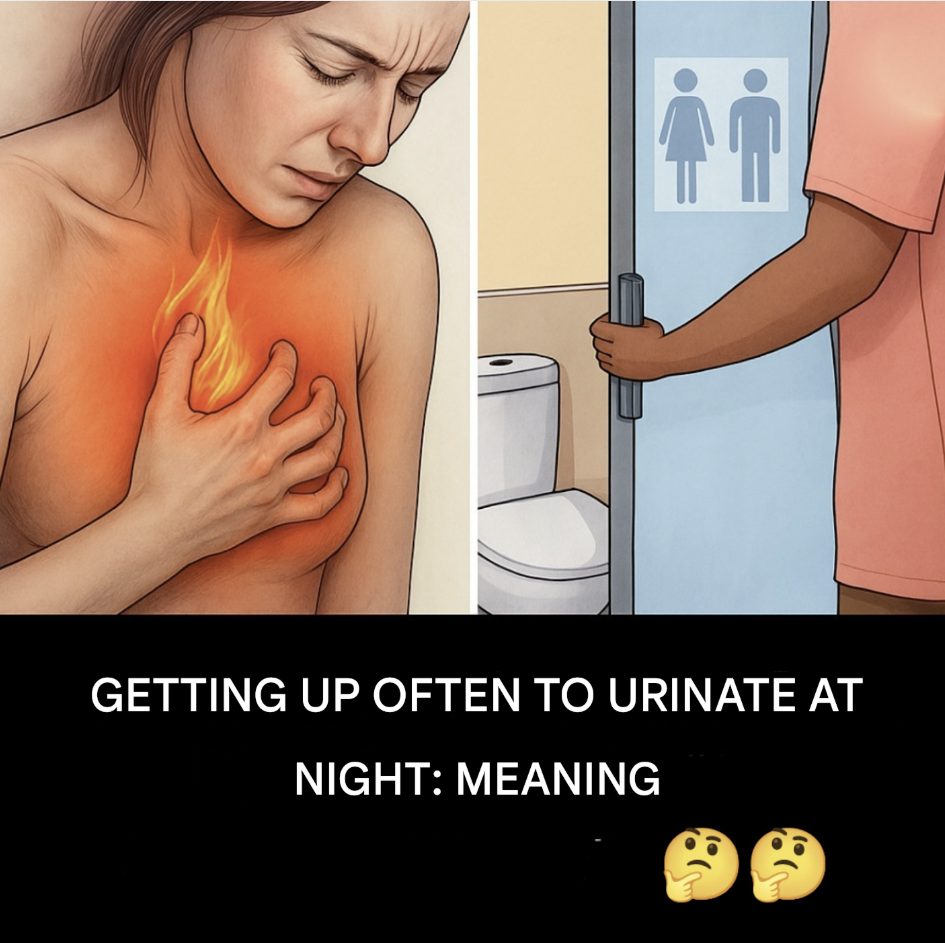During the day, when standing, some of the fluids tend to accumulate in the legs due to gravity. This phenomenon can be accentuated in the case of poor venous return , heavy legs , or even early heart failure .
When we lie down at night, the redistribution of these fluids in the body allows the blood to be filtered more efficiently by the kidneys. The result: more urine is produced during the night … and therefore, more trips to the bathroom.
And on the health side, should we be worried?
It’s perfectly natural to have concerns when you start getting up frequently at night to urinate, especially if it’s become a recent habit. While in most cases this phenomenon is benign, in some situations it can also reflect a deeper imbalance. The key is to learn to listen to your body… without giving in to excessive alarm.
Signs not to be overlooked
When should you consider a medical consultation? Three signs can serve as alarm bells:
The disorder begins suddenly or worsens in a short time.
It is accompanied by other unusual symptoms: significant fatigue upon waking, feeling of intense thirst, back pain, burning or pain when urinating.
No improvement is observed despite a good lifestyle and a reduction in evening fluids.
In these cases, a health assessment can help identify a more precise cause and implement appropriate solutions.
What it can hide in women
In women, several factors can play a key role:
A weakened perineum : Often after pregnancy, childbirth, or with age, the pelvic floor can lose tone. The result: less effective bladder control, resulting in more frequent urges, including at night.
Overactive bladder : This is a functional disorder that causes the bladder to send urgency signals… even when it’s not actually full. This can lead to frequent urination day and night, sometimes even before you’ve had time to reach the toilet.
Hormonal changes : At menopause, the drop in estrogen can affect urinary tissue and increase the frequency of nighttime urges.
And what about men?
In men, one of the first suspects is often benign prostatic hyperplasia , a common condition after the age of 50. This increase in prostate volume can impede the flow of urine and cause a need to urinate more frequently, including during the night.
This disorder, although benign, deserves a medical evaluation to ensure it does not progress to more serious complications. Simple treatments exist to improve quality of life without resorting to surgery.
Simple actions to sleep better… and get up less
Fortunately, there are some very concrete ways to regain control of your nights:
Reduce liquids after 8 p.m. , and favor non-diuretic drinks (chamomile infusion, lukewarm water).
Adopt a soothing evening routine that promotes deep sleep: dim lighting, light reading, slow breathing.
Keep a urinary diary for a few days , to identify key times when your bladder seems most active.
Strengthen your pelvic floor with some Kegel exercises, which are very effective for regaining better bladder control.
Sometimes peaceful sleep begins… with listening to your bladder.
